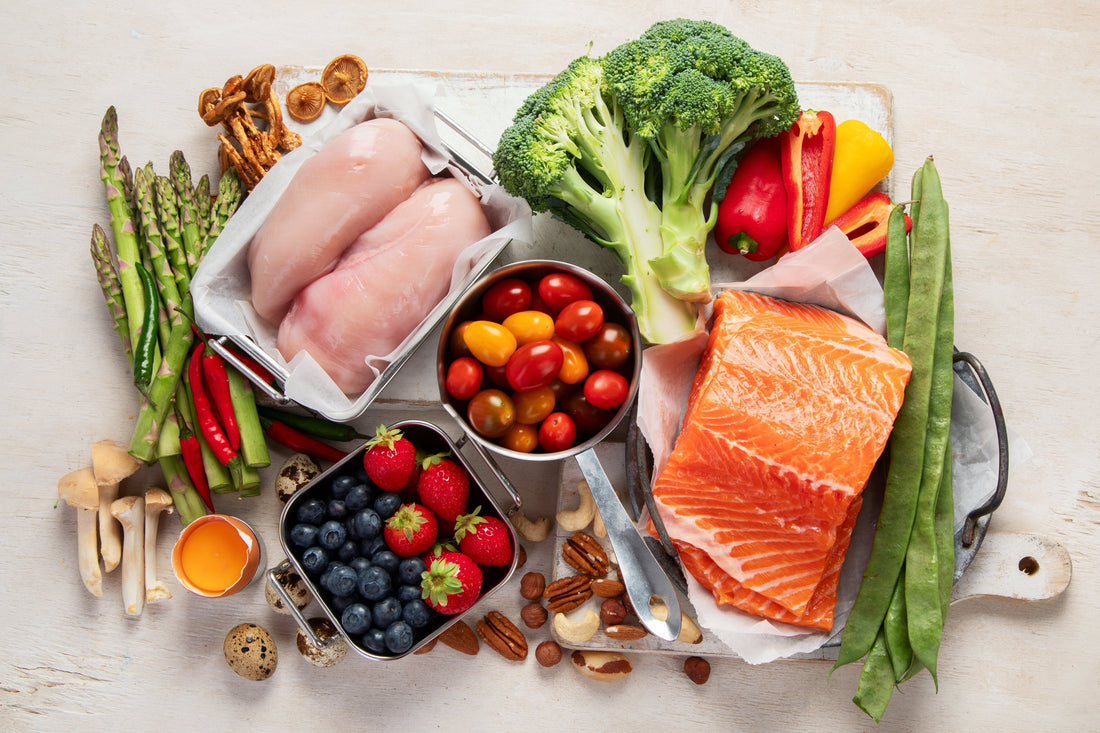
Healthy Meal Prep Charlotte | Keto, Paleo, Vegetarian, Vegan… Which Is the Healthiest?
Share
When it comes to nutrition, the question “Which diet is healthiest?” often sparks heated debates. But here’s the truth: there is no single diet that works best for everyone. The “healthiest” diet depends on a complex mix of factors—your genetics, lifestyle, medical history, age, activity level, and even how your body processes certain foods.
Healthy Chef Steph offers Healthy Meals & Meal Prep in Charlotte that make eating well effortless. Our rotating menu features delicious, portion-controlled dishes under 600 calories, with keto-friendly and low-carb options to fit your lifestyle—all delivered fresh to your door every Monday.
1. Why “One-Size-Fits-All” Doesn’t Work
Our bodies aren’t identical machines—they’re more like unique ecosystems. Two people can eat the exact same meal and have very different blood sugar responses, energy levels, or digestive comfort. Some thrive on high-fat diets, others feel sluggish. Some flourish with plant-heavy plates, others struggle without animal protein.
2. Individual Factors That Matter
Blood Type:
The “Blood Type Diet” is controversial, but some research suggests blood type might influence things like digestion, inflammation, and metabolism. For example, Type O individuals may process animal protein more efficiently, while Type A might do better with more plants and less red meat.
Metabolic Health:
If you have insulin resistance or prediabetes, a lower-carb approach like keto or modified Paleo might help control blood sugar. If your metabolism runs well on carbs, a plant-based or Mediterranean approach could be ideal.
Digestive Health:
People with IBS, food intolerances, or certain autoimmune conditions may need to avoid foods that others can eat without a problem—like legumes, dairy, or grains.
Nutrient Needs:
Athletes may need higher protein intake for muscle repair. Someone recovering from anemia might benefit from more iron-rich foods, often found in meat.
Ethical & Lifestyle Choices:
For some, health isn’t just physical, it’s also about values. Vegan or vegetarian diets align with ethical and environmental priorities.
3. A Quick Look at the Four Diets
- Keto: Low-carb, high-fat. Can help with weight loss and blood sugar control, but may be restrictive long-term and isn’t ideal for everyone’s heart health.
- Paleo: Focuses on whole foods and avoids grains, dairy, and processed foods. Encourages nutrient density, but can be expensive and unnecessarily restrictive for some.
- Vegetarian: Plant-based with dairy/eggs allowed. Can be nutrient-rich, but watch for potential deficiencies in B12, iron, and omega-3s.
- Vegan: Fully plant-based. Ethically and environmentally appealing, but requires careful planning to avoid nutrient gaps (B12, iron, zinc, protein).
4. The Healthiest Diet? The One That’s Sustainable for You
The “best” diet is one you can stick to long-term, that keeps you energized, supports your health markers, and fits your personal values. That could mean:
Keto for a few months to reset blood sugar
A plant-based Mediterranean style for heart health
Paleo-style eating for digestive comfort
Or a hybrid approach uniquely tailored to your needs
Bottom Line: Instead of asking “Which diet is the healthiest?” ask “Which diet is healthiest for me right now?” The answer might change as your body and lifestyle change.
Below is a easy to follow chart, so you can decide which works best for you and your lifestyle.
Diet Comparison: Matching Eating Styles to Different Needs
|
Factor |
Keto |
Paleo |
Vegetarian |
Vegan |
|---|---|---|---|---|
|
Best For Body Types |
✅ Suits those storing fat in midsection, thrives on low carb |
✅ Naturally muscular builds, animal protein tolerant |
⚠️ Better for leaner types needing moderate carbs |
⚠️ Works for slender/endurance builds; may not suit high strength goals |
|
Blood Sugar & Metabolic Health |
✅ Great for insulin resistance & type 2 diabetes |
✅ Supports stable blood sugar |
⚠️ Can help if whole-food focused |
❌ May spike blood sugar in insulin resistance |
|
Digestive Comfort |
⚠️ Helps grain/legume sensitivity but may cause constipation |
✅ Gut-friendly with veggies/fermented foods |
⚠️ May cause bloating if high in legumes/dairy |
⚠️ High fiber good for gut but can irritate IBS |
|
Nutrient Highlights |
✅ High omega-3s (if done right) & moderate protein |
✅ Nutrient-dense meats, fish, nuts, veggies |
✅ High antioxidants, fiber |
✅ Very high antioxidants & fiber |
|
Potential Nutrient Gaps |
⚠️ Fiber, vitamin C, electrolytes |
⚠️ Calcium, vitamin D (if no dairy) |
⚠️ B12, iron, omega-3s |
❌ B12, iron, zinc, omega-3s, protein risk |
|
Best For Activity Level |
⚠️ Low/moderate activity, weight loss phases |
✅ Strength/mixed training |
✅ Moderate endurance |
⚠️ Endurance with careful protein planning |
|
Lifestyle Fit |
⚠️ Requires giving up bread/pasta, macro tracking |
✅ Fits whole-food lovers |
✅ Socially flexible |
⚠️ Strong ethical fit but harder eating out |
